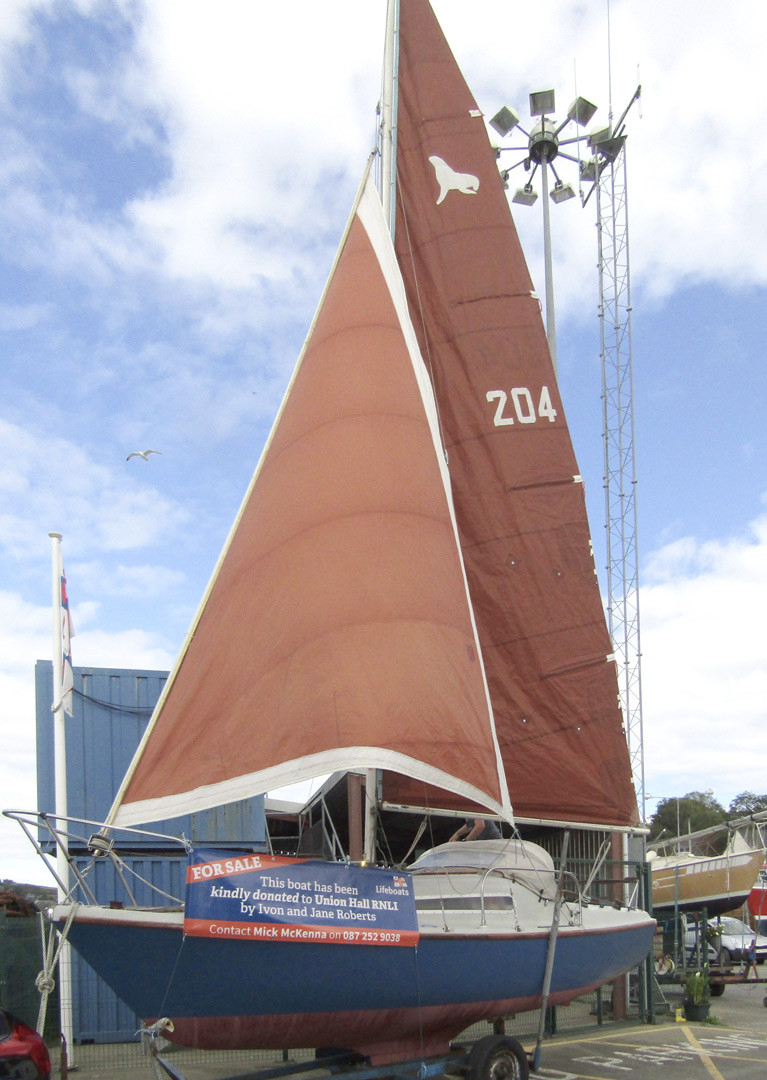Thanks to the generosity of Ivon and Jane Roberts from Rosscarbery, County Cork, you now can be the next owner as the couple has donated their boat Decade to Union Hall RNLI.
Ivon and Jane bought Decade on their tenth wedding anniversary 23 years ago and now with their crew Jessica and Ivon after flying the nest, they are looking for a new purchase. Decade is a Seal 22 Mark 2 boat, approximately 21ft in length and comes with the trailer.
 (From left to right) Jane & Ivon Roberts, Harriet O’Regan, Jim Moloney, Mary Jacinta Casey, Carmel & Mick McKenna
(From left to right) Jane & Ivon Roberts, Harriet O’Regan, Jim Moloney, Mary Jacinta Casey, Carmel & Mick McKenna
Pamela Deasy, Union Hall RNLI said: ‘The team at Union Hall RNLI want to thank Ivon and Jane for their generous donation. Due to the Covid-19 pandemic all fundraising events have been cancelled bar those of a virtual nature so this opens the door for a new owner, the next chapter of Decade while also raising funds for Union Hall RNLI. The fundraising team also want to thank Garrett O’Mahony, harbour master and Cork County Council for facilitating the boat on Union Hall pier.’
Ivon comes from a family steeped in maritime heritage and his great grandfather Richard Roberts was Captain of the Sirius which was the first wooden-hulled side steamship built-in 1837 to cross the Atlantic.
The boat is on a single axle trailer on Union Hall pier ready to go sailing.
For further information on how to make an offer to purchase the vessel, people are asked to contact Mick McKenna on 087 252 9038.































































